The seminal Hollywood movie on apartheid South Africa and its pioneering black female director
When Euzhan Palcy released the second film she’d ever made, A Dry White Season, in 1989, she wrote herself into the history of filmmaking, becoming the first black female filmmaker to helm a studio movie—one with big name actors and a budget to go along with it. It should have heralded a new era in her life, as a filmmaker of note, but it’s only now, 30 years later, that she looks set to return to her love of cinema.
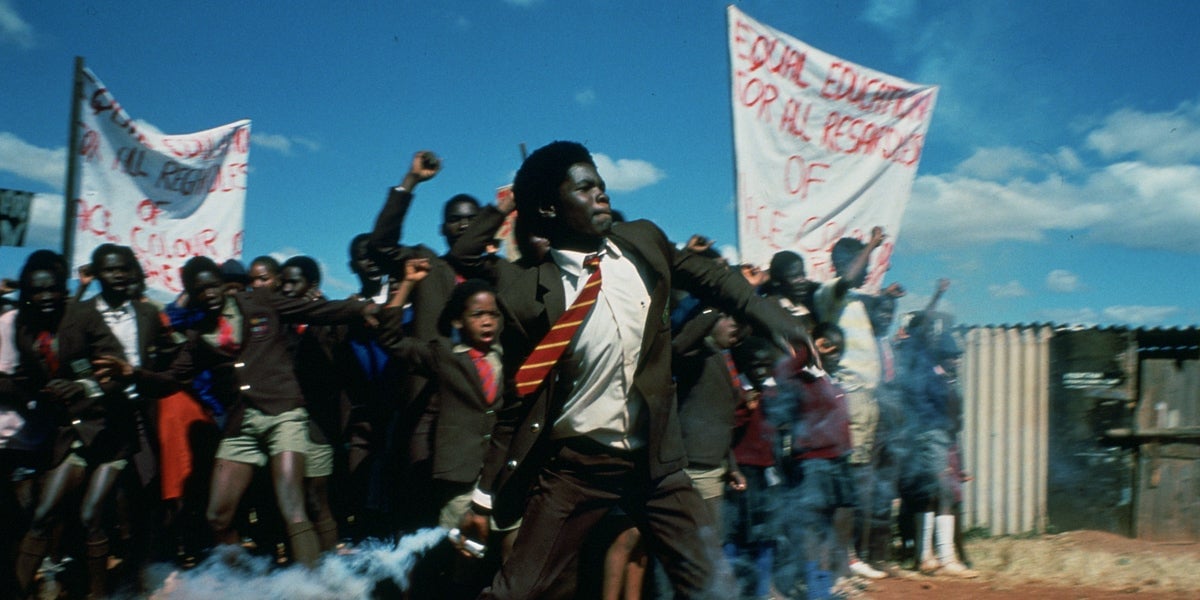

When Euzhan Palcy released the second film she’d ever made, A Dry White Season, in 1989, she wrote herself into the history of filmmaking, becoming the first black female filmmaker to helm a studio movie—one with big name actors and a budget to go along with it. It should have heralded a new era in her life, as a filmmaker of note, but it’s only now, 30 years later, that she looks set to return to her love of cinema.
A Dry White Season, based on the book by the late, best-selling South African author Andre Brink, played at the Toronto International Film Festival earlier this month, before it plays again next month, as part of a retrospective the festival created to celebrate the Martinique-born filmmaker’s work. London’s Barbican Cinema and HOME, Manchester, England’s center for international contemporary art, have also announced they’re bringing Palcy’s work to the big screen next month too.
It’s a spotlight Palcy is glad to see shining on a film she felt compelled to make, watching the apartheid situation in South Africa worsen from afar, growing up on the French Caribbean island. “It is the most fantastic gift, to see how the film has impacted people, even still today,” she says thirty years later. “It still has such a relevance, if you look at what’s happening in the US right now, with the shootings and killing that are going on.”
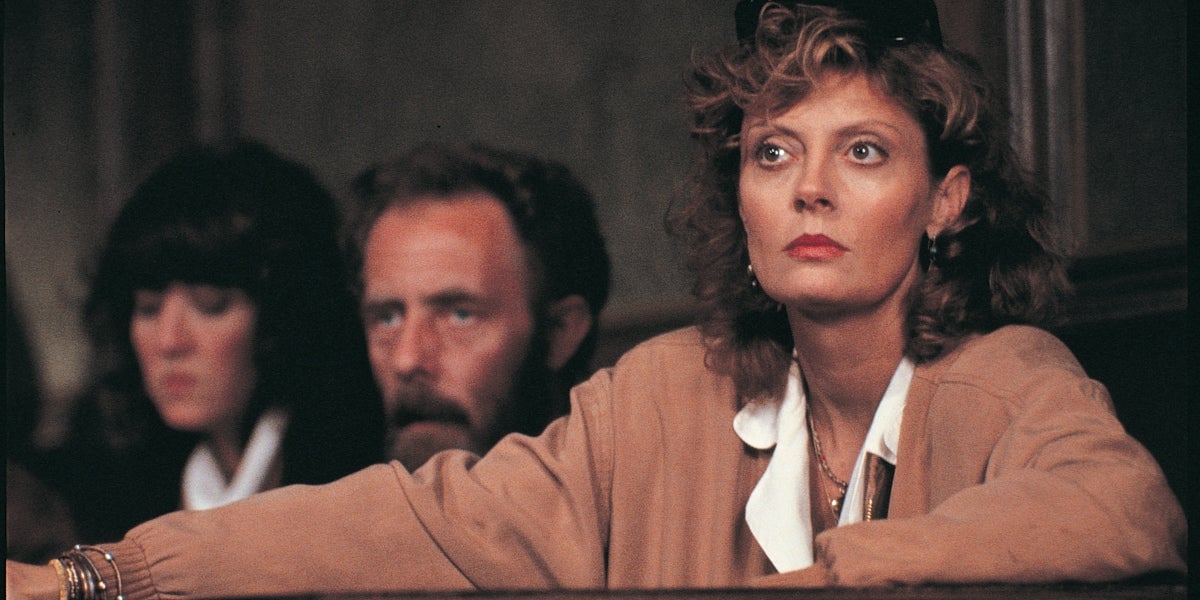
Indeed it’s a story very specific to South Africans, about a white well-to-do Afrikaans family man who comes to an awakening, through the murders of his black gardener and his family, that being disapproving of unjust racist laws in principle is nothing without action. But its passionate appeal for social justice, even in the face of resistance, rings true universally. “It’s a Hollywood production but it’s not a Hollywood film, it’s a Euzhan Palcy film,” says Palcy.
After her debut feature, the independently-made Sugar Cane Alley, about poor Caribbean plantation workers, won dozens of awards, among them a Cesar and the Venice Film Festival’s Silver Lion (making her the first black woman to win), Palcy became in demand by Hollywood and the movie industry. A nudge from Robert Redford sent her off to meet with a few producers, eventually landing Palcy at MGM, where she presented her ideas for the book A Dry White Season (Brink became the first Afrikaner writer to be banned by the government for writing it) to chairman Alan Ladd Jr. It wasn’t just studio bigwigs that came a-calling—the stars did, too. “Paul Newman asked me five times if he could play the lead role of Benjamin Du Toit,” says Palcy.
“With all the love and respect I had for him, it was better to have Donald Sutherland play the character. He’s an everybody. Paul Newman was not. He was so striking, so handsome, I was afraid people wouldn’t identify with him,” she says.
Susan Sarandon and Marlon Brando wanted to be in the film too, with Brando coming out of retirement for the shoot and reportedly donating his salary to an anti-apartheid organization. Palcy shot the court-room scenes that earned him a best supporting actor Oscar nomination at Pinewood Studios in the UK, because he couldn’t travel at the time. Harare stood in for suburban Johannesburg, and the core actors came over from South Africa.
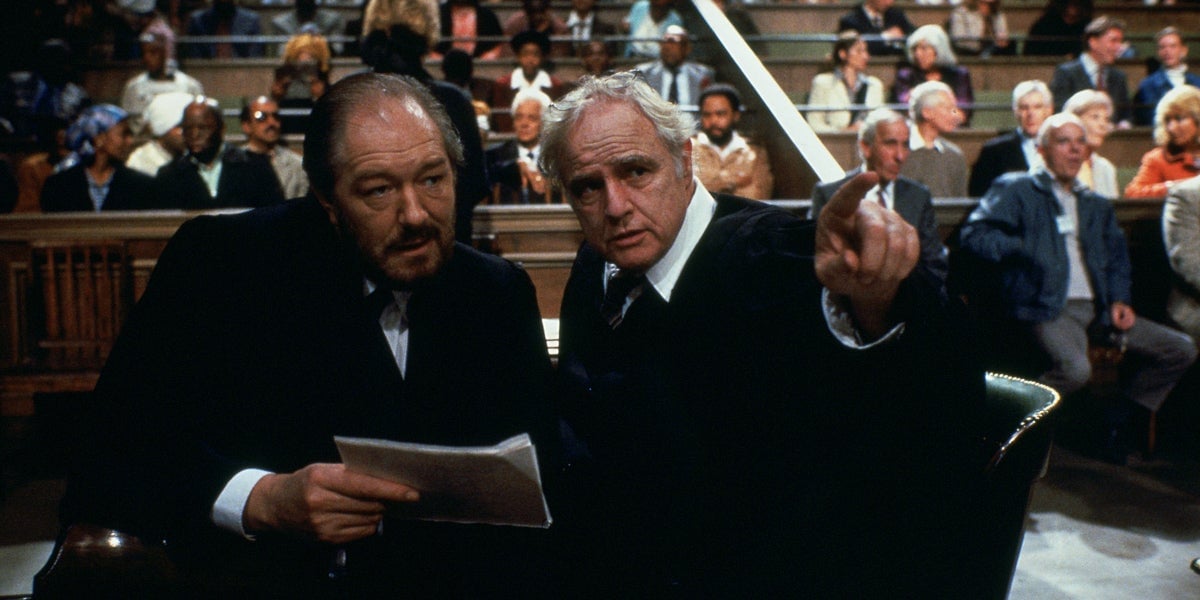
“I wanted all the black South African characters to be played by black South African actors because they knew what was going on there; they lived it,” says Palcy. The late Tony-winning actors Winston Ntshona and Zakes Mokae were cast, with John Kani, who is now a Hollywood regular after his Avengers and Black Panther turns, in one of his early onscreen roles.
Palcy received positive reviews for the film and was cemented as “a gifted filmmaker by the likes of the late film critic Roger Ebert. A Dry White Season could have catapulted her to more making more films. But she hasn’t made another movie since then.
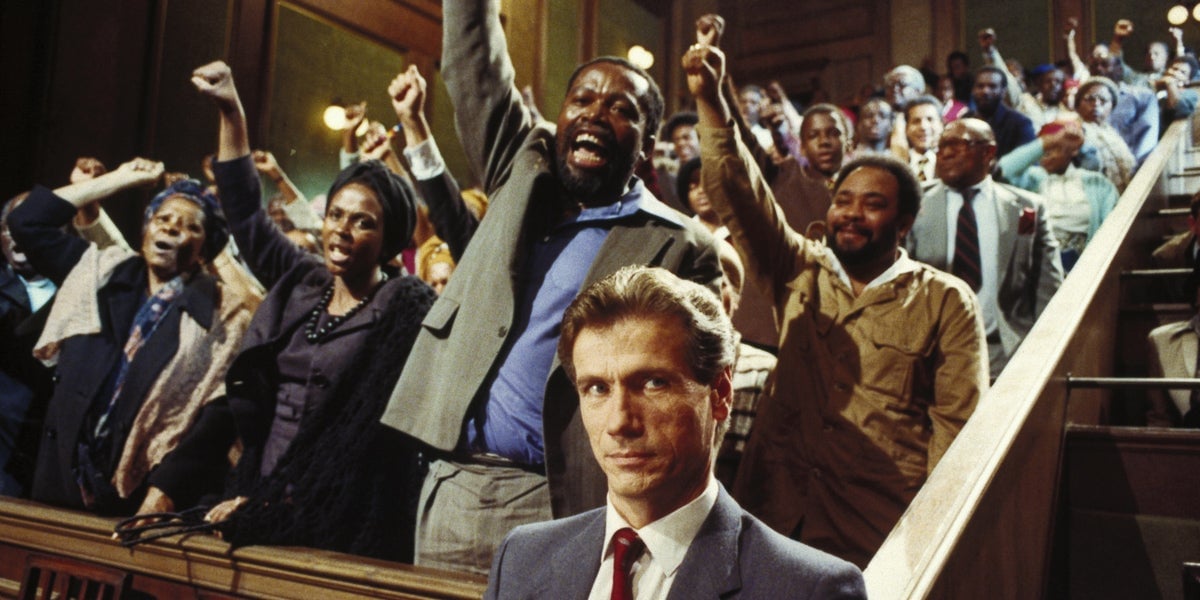
“I turned down hundreds of screenplays,” she says. “[The studios] couldn’t accept the fact that I wanted to do stories with black leads. They said they weren’t bankable. They saw the kind of work I could do — political, action, comedy, thriller as well, they knew. But they kept trying to get me to do their stories and I’d say, ‘hell no! You don’t do mine, I won’t do yours.’ It was very hard, I never felt so lonely,” she says.
“I spent more than 20 years on the road, fighting to make people who had the money open the doors to diversity, and to female directors. As a female filmmaker, whatever my color, it was absolutely difficult.” It’s the reason powerhouses of today, like Ava DuVernay and Shonda Rhimes, revere her.
Palcy has focussed on sharing her knowledge and skills, while making TV movies and documentaries. “In my deals, I always made sure I had trainees, especially females, and they would learn not only directing but everything that happens on a set. What I couldn’t do with my movies, I did it with my training, and my life.”
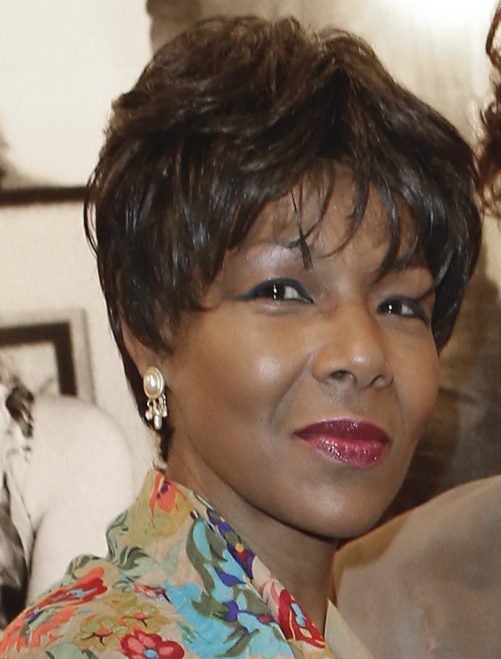
She hopes women see today’s technology as a blessing. “You don’t have to have these giant cameras that only men can carry now,” she chuckles. “The new tech gives you your freedom, so you should grab it, and film your grandmother, your mother, record their history. Don’t wait anymore, grab your opportunity and make your movies. Create great content and they will forget you are a woman!”
It’s advice she’s able to herself follow now, at long last. Palcy has six projects in the works, among them 2 movies, one about Bessie Coleman, the first African American and first Native American woman pilot, and leader of the Haitian Revolution, Toussaint L’Ouverture. “I was waiting for the little seeds I planted to come to fruition, now I’m ready to move forward,” says Palcy. “All this time, I kept writing a lot, thinking when the time is right, I will do them.”